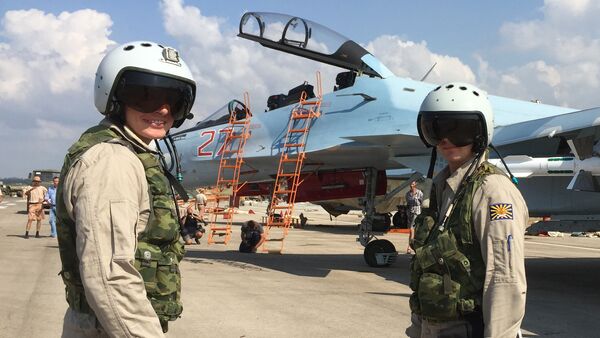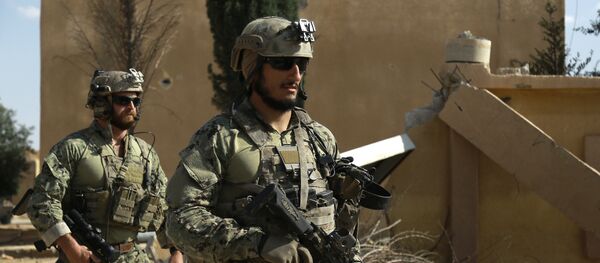Washington's Russia policy has largely failed, Thomas Graham, managing director at Kissinger Associates, and Matthew Rojansky, the director of the Wilson Center's Kennan Institute, state in their article for Foreign Policy magazine.
"By any number of measures, Washington's Russia policy has failed. While ostensibly suffering from diplomatic and economic isolation under a US-led international sanctions regime, Moscow has succeeded in challenging a wide range of American interests, most notably in Ukraine, Syria, and cyberspace," Graham and Rojansky emphasized.
"The next president needs to accept that Moscow cannot simply be defeated or contained in the emerging multipolar, globalized world order. It must be engaged through a comprehensive balance of cooperation and competition," the US scholars stressed.
Instead of futile attempts to defeat or transform Russia, "a new US approach should deal with Russia as it really is," they note, adding that it is still "a major power on the world stage."
The scholars continued that the next US administration will have to convince Moscow to cooperate on issues like preventing the proliferation of weapons of mass destruction (WMD), recognizing the fact that Russia still has its own geopolitical interests which seldom overlap entirely with those of Washington.
"The goal should involve constructing a web of interactions, both cooperative and competitive, that yields the most beneficial balance for our [the US'] national interests," Graham and Rojansky highlighted.
As for Syria, whether one likes it or not, the US "has no better option than to keep trying to work with Russia," the US scholars believe.
The scholars noted that the much-discussed no-fly zone in Syria, championed by some of US policymakers, should be dismissed as unrealistic, since it bears the risk of igniting an all-out war with Moscow "in the region and elsewhere."
At the same time Graham and Rojansky insisted that US-Russian discussions on Syria would have a greater chance of success if they were linked with the Ukraine crisis issue and the broader issue of European security.
Enea Gjoza of the Harvard Kennedy School of Government echoes Graham and Rojansky. The US academic believes that it is time for Washington to return to "smart diplomacy" while dealing with Moscow.
"A return to the smart, interest-based diplomacy that characterized US foreign policy during the Cold War is essential for making progress on intractable problems," Gjoza emphasized in his op-ed for The National Interest.
In reality, the US and its European allies have no leverage on Russia, according to Moscow-based political analyst Irina Alksnis.
The West's inability to influence Russia in Syria prompts Washington and Brussels to issue empty threats, such as to refer the situation in Syria to the International Criminal Court and hold Damascus and Moscow responsible for "war crimes," she noted in her article for Russian online newspaper Vzglyad.
While there are no legal preconditions for bringing Moscow and Damascus to trial, the West's intention to exert pressure on Russia and the Syrian government could be rephrased as the following: "We can't defeat Russia and Syria either politically or militarily, so they ought to surrender themselves to us so that we can punish them for their behavior that we don't like," Alksnis remarked with a touch of irony.
The political analyst stressed that behind the hawkish rhetoric of some Western policy-makers lies their irritation with Russia coupled with their inability to swing the balance in the West's favor.
Although the Obama administration has repeatedly signaled that it is considering military options in Syria, including arming the opposition and launching direct air strikes against Bashar al-Assad's Syrian Arab Army, it appears that Pentagon and NATO war planners are not really ready to provoke a direct conflict between Russia and the US, Alksnis underscored.
That means, the political analyst suggested, that Moscow and Damascus will continue their counter-terrorism campaign in Syria while waiting for the West to adopt more cooperative and negotiable stance on foreign policy issues.




